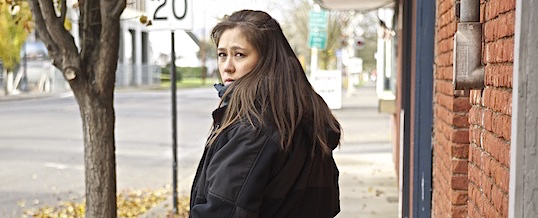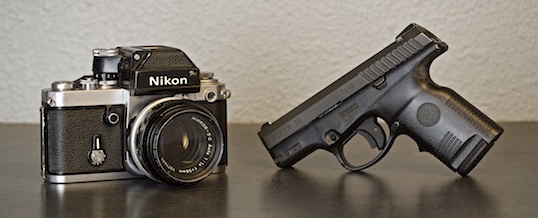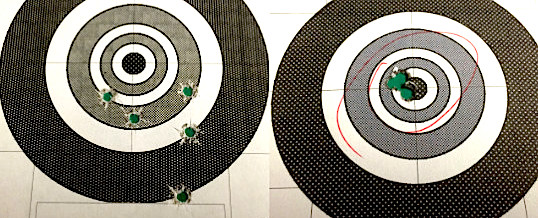
Do you carry religiously? You may not be as safe as you believe.
I know that most of the people reading this blog are here to learn about defensive shooting, concealed carry, firearms training, and related topics. The rest are interested in things like rifles, revolvers, reloading, and other technical issues. In other words, regardless of the group into which you fit, if you’re reading this you’re probably a “gun person” — and despite what the media might try to tell you, there’s nothing inherently wrong with that. It can, however, limit your perspective.
As I’ve said many times, your lawfully carried defensive handgun is a very efficient tool to use against a low-probability but high-consequence event. That means, with a small outlay of effort in using that tool, you can prevail in the kinds of incidents that don’t happen very often but have the potential to be life-altering or even life-ending. The firearm is a very limited-application device in the totality of self defense situations and, being a reactive tool of restricted application, doesn’t keep you safe because it doesn’t prevent an incident from unfolding. It simply gives you a tool to defend yourself once a very specific type of event has occurred.
Lack of understanding
This is apparently a new concept for a lot of people, even (maybe especially) for those who have been in this field for a while! With such limited application there is no way the gun can really keep you safe — it’s all the other stuff you do that keeps you safe; the gun simply gives you a way out when things go horrendously bad. The gun has often been compared to a fire extinguisher: does a fire extinguisher prevent fires? Of course not. It’s just a tool to allow immediate response in case one breaks out.
Why do I bring this up? Because I’ve run into more than a few people over the years who express great trepidation over being in circumstances where they aren’t able to carry a gun. Some take it to the extreme of never traveling or visiting any place where they can’t have a gun on their person. They indicate, explicitly or implicitly, that they’re more cautious, more careful when they’re not carrying; although they’d never use the word, they’re more fearful. They behave differently.
I submit that if you find yourself acting differently, more cautious or fearful, when you can’t carry a gun you have a problem that results in you not being truly prepared for violence. The gun has blinded you to both its proper use and what actually keeps violence from being visited upon you.
What really keeps you safe?
If your goal is truly to keep you and your family safe, you’ll exercise the same level of care when you carry a gun as when you don’t — because it’s that very care which prevents things from happening to you, gun or no gun. To use John Farnam’s great saying, you don’t go to stupid places and do stupid things with stupid people regardless of whether you have a gun or you don’t. Yet, to hear some people talk, that would seem to be precisely what they do: “I wouldn’t go there if I couldn’t carry a gun.” That’s a sign you probably shouldn’t be going there at all, gun or no gun! If you feel so unsafe that only the presence of your gun makes you feel better, that’s your intuition telling you it’s a stupid place, or you’ll be doing stupid things, or you’ll be with stupid people — or all three. How about just not doing it?
One well-known trainer has said that carrying a gun should be “comforting”, an idea I reject on its face: if it’s comforting, it will make you complacent — which is the antithesis of staying safe. That comfort can lead you to making bad choices and doing things that have inherently higher risk, like playing with gasoline and matches in your bedroom because you know there’s a fire extinguisher in the house.
An unorthodox drill
How do you internalize the idea that it’s the other stuff you do that really keeps you safe? How do you get over the irrational notion that it’s your CCW that does this? As I’ve told more than one class, I think a valuable drill is to occasionally practice NOT carrying your gun. I know it sounds odd, and I know the overly-shooting-oriented defensive training community will excoriate me for saying that, but I believe there are benefits to be had by occasionally doing such an exercise.
First, it helps break that mindset that your gun is keeping you safe. No matter how much anyone protests, I think every person with a CCW develops some degree of that mindset over time. I know I do, and I’m probably one of the most immune to doing so! Intentionally not carrying opens your eyes to the things that you should always be paying attention to, but don’t because you’ve been “comforted” by the presence of the gun.
Second, unless you plan on living an intentionally limited life, you’ll at times find yourself going to wonderful places where you simply can’t or aren’t allowed to carry a gun. Practicing and preparing for those situations ahead of time is no less important than practicing and preparing to use your gun before you need to. This kind of practice might including learning to pay more attention to managing your distractions; learning the local gestures and body language differences to pick up on aggression cues; practicing with improvised or low-profile weapons; it might even mean learning and practicing some unarmed skills or employing a less-than-lethal tool. Whatever it is, it needs to be learned and practiced if it’s going to be effective.
If you find yourself feeling different, more careful or less confident without the gun, that’s your cue that you haven’t been paying nearly enough attention to your real safety. It means that you’ve assigned too much of your well being to a device of very limited utility. Your gun has become a talisman, not a tool. It also means that you need to devote some of your training resources to those other skills I listed above and integrate them into your life.
If, however, you feel completely confident and change nothing about your routine or your habits, then you probably have a good understanding of your concealed gun’s real place in your personal security planning. That’s how you know you’re at a point of balance, which means you’re safer overall than someone who isn’t.
Strive for balance.
– Grant Cunningham
- Posted by Grant Cunningham
- On January 18, 2016



